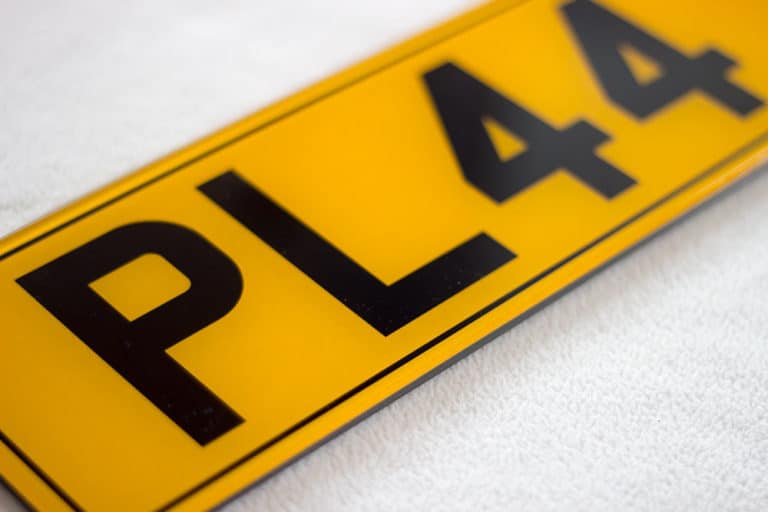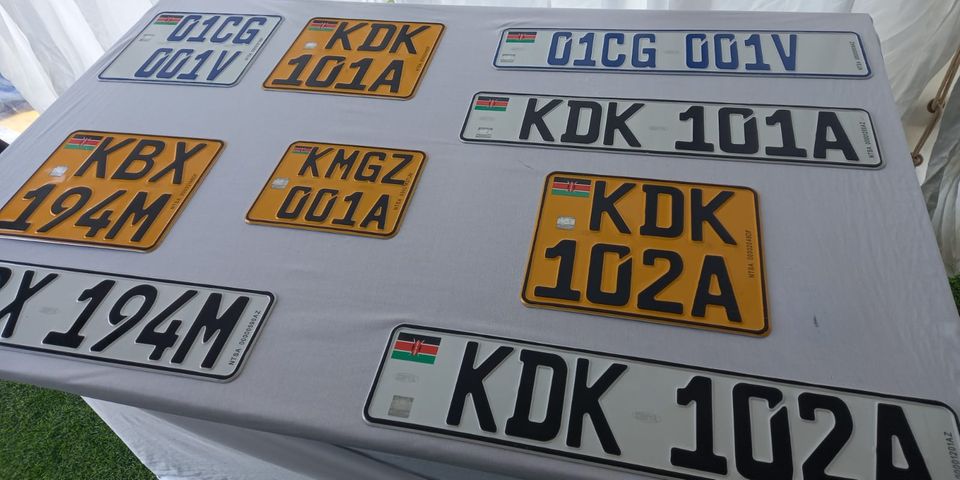If you’re looking for a new number plate for your vehicle, there are some things you should be aware of. There are many rules and regulations that govern the manufacture and display of a number plate, but most are very simple to follow. Here are five things you should keep in mind when you are ready for a new plate.
Set a Budget First For Your Plates
If you decide to opt for personal number plates you should definitely set yourself a reasonable budget before looking for a suitable combination of numbers and letters. Investing in private number plates can be a great way to add exclusivity and value to a vehicle. They can also be a great investment if you pick up a desirable combination of letters and numbers, with some selling for considerably more down the line. If you’re looking to find an affordable number plate to start off with, you’d be best off steering clear of any very popular names or short phrases, as these are usually expensive and in high demand.
Plates that have a combination of letters and numbers that resemble a word or have an easily recognisable code within them can cost thousands of pounds. They do hold their value, however, and can increase in value a lot over time. If you do not wish to buy a personalised plate, buying a new number plate can be incredibly inexpensive and give your vehicle a fresh look.
Learn the Regulations
Many years ago, the rules and regulations governing number plates were more relaxed. People had access to different fonts and typefaces, as well as some colour and material options. The DVLA has since tightened the regulations, giving motorists fewer options when designing a number plate.
This is because of automated number plate recognition systems. By having uniform number plating, all UK number plates can now be recognised by camera systems at toll stations, tunnels, and by police-operated speed cameras. If you are getting a number plate for a car manufactured before 1973, there are more options. You can have a period-correct, historical plate made from modern or traditional materials. These have a solid black background with silver or white characters.
Where to Buy a Plate
If you are replacing an existing number plate you should be able to get this done by a licensed mechanic or motorist supply shop. Existing plates do not need to be re-registered with the DVLA, but if you change the plate on a vehicle to a new combination it must be registered with both the DVLA and your insurer.
Personalised, or private, number plates can be bought directly from the DVLA or from number plate brokers. These companies usually have tools that let you search for available combinations and may also hold auctions for number plates that are in high demand. They can even help you find a specific plate if it is already owned by a motorist. The current owner may be ready to sell for the right price.
You Cannot Disguise Your Car’s Age
When you are choosing a new plate for your vehicle, you should be aware of how a combination can show the age of the vehicle. Since 1963, number plates in the UK all indicate the first year of issue, denoting the age of the car. Though a car may have a different date of manufacture than its first registration, the number on the plate is what is used to assign an age to the car.
You cannot choose a plate that would appear to reduce the age of a car. The new number plate that you choose for your vehicle must reflect the age of its initial registration, or earlier. You cannot give a car made in 2006, for example, an ‘08’ number where its registration year should be.
Get Professional Help To Fit The Plates
When it comes to making and fitting your licence plate, it may be best to enlist some professional help. If your plates are affixed incorrectly, you could be in violation of the rule and regulations governing number plates. The positioning of the screws or bolts used can affect the appearance of the characters on the plate. This can change how your number plates are read by automated systems or by people, such as the police.
Having a professional mechanic or car detailer do this job for you can help you to ensure your number plate is legal, and prevent bumps down the road. Though the police are very understanding if you have attached your number plate incorrectly, you are still in violation of the law. Taking this extra step comes at only a small cost and can pay for itself when it saves you from a fine or points on your licence for driving an incorrectly plated vehicle.
When you are ready to begin searching for a personalised plate, or you are replacing the existing plates on your vehicle, remember this guide. As long as you stay within the rules and regulations you can have a lot of fun plating your vehicle.


